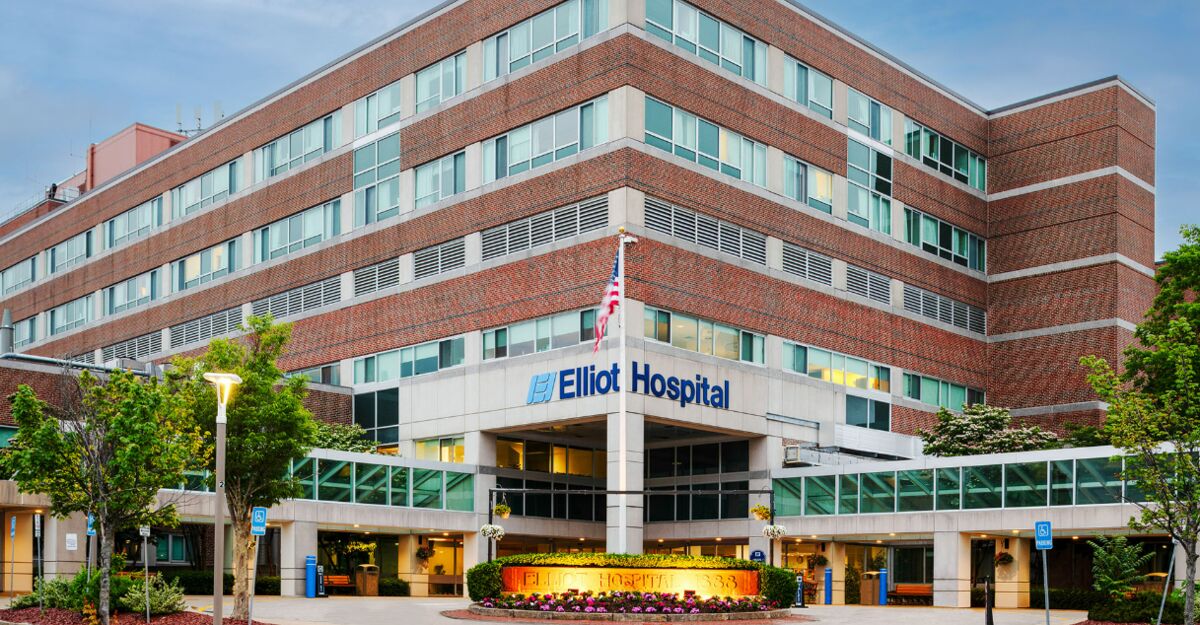Volunteering with ESOL in Healthcare at the Elliot

Teaching English and learning from immigrants pursuing healthcare careers through IINE at Elliot Hospital.
“The refugees and immigrants we serve tell us that strong English language skills are the key to unlocking their dreams.” - IINE
- What Is ESOL in Healthcare?
- Teaching and Learning
- The Stories Behind the Students
- Cultural Exchange Goes Both Ways
- Why This Matters
- What I’ve Gained
- Learn More About IINE
- Definitions
What Is ESOL in Healthcare?
I volunteer with the ESOL (English for Speakers of Other Languages) in Healthcare program through the International Institute of New England at Elliot Hospital in Manchester. IINE has been providing humanitarian relief, English language learning, employment support, and skills training to refugees and immigrants for more than a century , and this program specifically focuses on helping immigrants build careers in healthcare.
 The Elliot Hospital, where I volunteer with the ESOL in Healthcare program.
The Elliot Hospital, where I volunteer with the ESOL in Healthcare program.
The program equips employees and students with improved language proficiency, enhancing their career growth opportunities and improving communication skills for advanced roles in healthcare . But it’s so much more than just an English class—it’s a bridge between cultures, a space for sharing stories, and an exchange of perspectives on what it means to care for others.
Teaching and Learning
I work both in person at the Elliot and online through Zoom, helping students improve their English fluency with a focus on healthcare-specific vocabulary and concepts. We cover everything from medical terminology and anatomy to workplace communication and cultural norms in American healthcare settings.
But here’s what makes this experience special: I’m not just teaching—I’m learning just as much from my students. These are people who have left everything behind to build new lives in a country where they don’t yet speak the language fluently. Many are already healthcare professionals in their home countries—doctors, nurses, pharmacists—who are now working to recertify or transition into new roles in the U.S. healthcare system.
The Stories Behind the Students
Every student comes with their own story. Some fled conflict or persecution. Others came seeking better opportunities for their families. All of them share a determination to succeed and contribute to their new communities. One student named Sova said the class helped her in many ways, allowing her to learn nursing terms, improve her English, and make friends, giving her confidence she wouldn’t have had otherwise .
During our sessions, we don’t just discuss grammar and vocabulary. We talk about their experiences navigating the American healthcare system, their observations about cultural differences in how illness is understood and treated, and their own backgrounds in medicine and caregiving. I’ve learned about traditional healing practices from around the world, different cultural approaches to patient care, and diverse perspectives on the doctor-patient relationship.
Cultural Exchange Goes Both Ways
Part of my role is helping students understand Western medical culture and workplace norms—things like direct communication styles, the importance of documentation, patient autonomy, and informed consent. But what strikes me most is how much they teach me in return.
I’ve had conversations about:
- How different cultures view mental health and wellness
- The role of family in medical decision-making across cultures
- Traditional remedies and their place alongside modern medicine
- What it means to be a healer in different societies
- How language shapes our understanding of illness and recovery
These discussions have fundamentally changed how I think about medicine and caregiving. Healthcare isn’t universal—it’s deeply influenced by culture, language, and lived experience. Understanding that makes me a better future healthcare provider.
Why This Matters
IINE serves more than 700 students each year through their ESOL program, offering English specific to job readiness and workplace etiquette . The impact is real and measurable—students improve their English, gain confidence, advance in their careers, and become valued members of healthcare teams across New Hampshire.
But the impact goes beyond employment statistics. This program creates a more diverse, culturally competent healthcare workforce. It helps ensure that patients from all backgrounds can receive care from providers who understand their language and culture. And it reminds all of us that healthcare is fundamentally about human connection—something that transcends language barriers.
What I’ve Gained
Volunteering with ESOL in Healthcare has been one of the most meaningful experiences of my education. It’s kept me grounded in the human side of medicine while I’m studying physiology and pathology. It’s reminded me that being a good healthcare provider isn’t just about clinical knowledge—it’s about cultural humility, communication, and the willingness to learn from every patient and colleague.
My students inspire me with their resilience, their work ethic, and their commitment to helping others despite the challenges they face. They’ve expanded my worldview and deepened my understanding of what it means to heal and help people from all walks of life.
Learn More About IINE
Definitions
- ESOL
- English for Speakers of Other Languages—language instruction designed to help non-native English speakers develop proficiency, often with a focus on practical skills for employment and daily life.
- Cultural Competence
- The ability to understand, communicate with, and effectively interact with people across different cultures, particularly important in healthcare settings where cultural differences can impact care.
